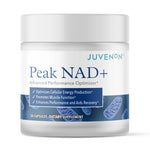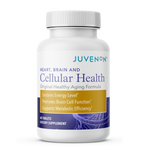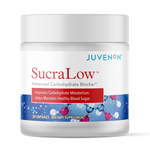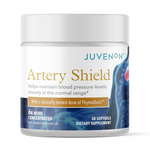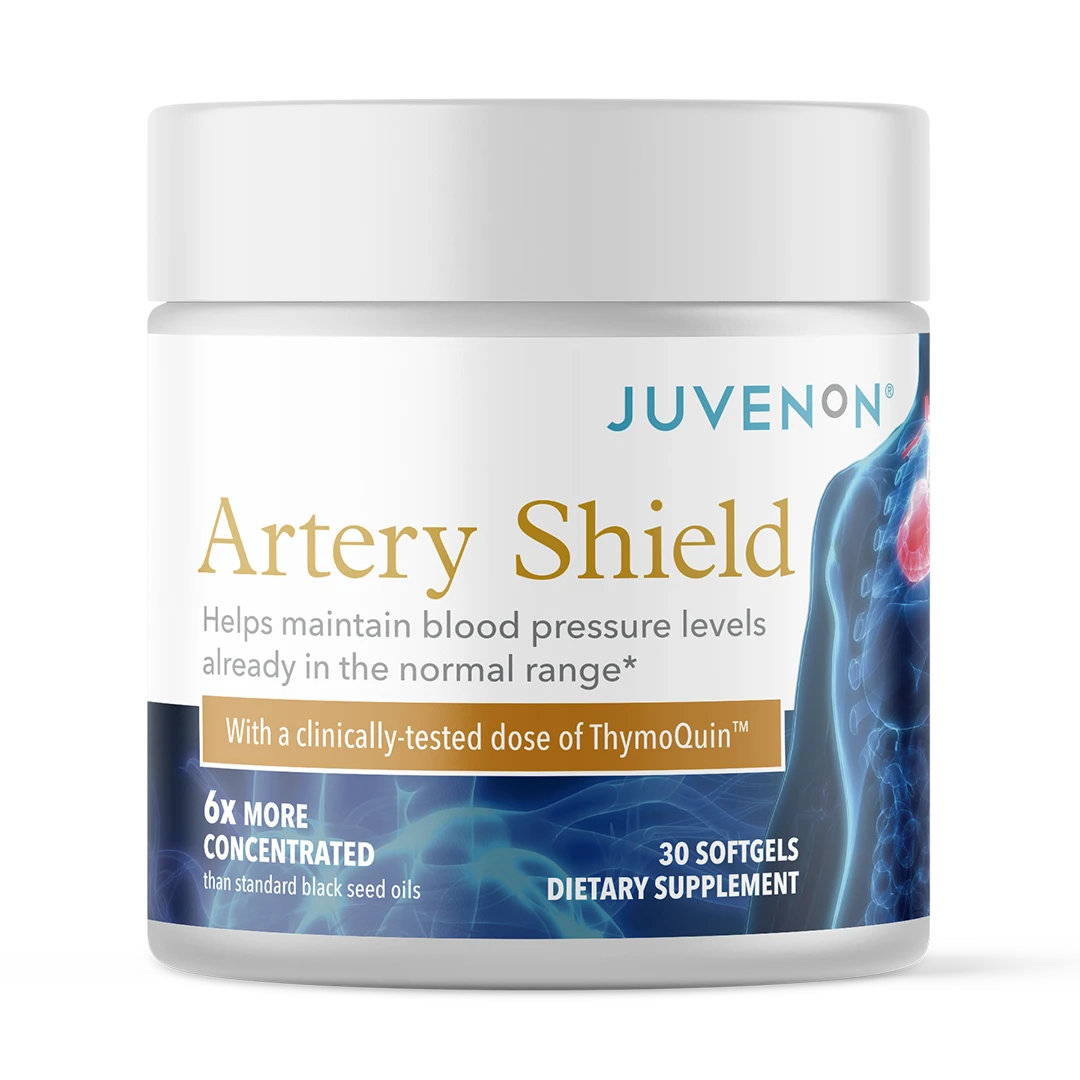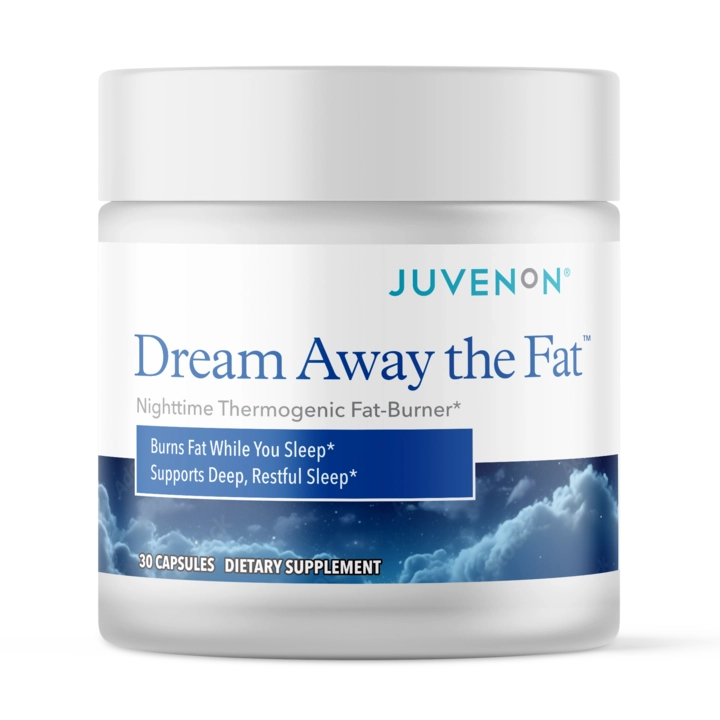How to improve nitric oxide in body—a question on the minds of many health-conscious individuals aged 40-65. The quick answer? Focus on these 5 simple steps:
- Eat Nitrate-Rich Vegetables
- Incorporate Antioxidants into Your Diet
- Engage in Regular Physical Activity
- Consider Nitric Oxide Supplements
- Limit Mouthwash Use
Nitric oxide is a vital molecule that supports overall health by acting as a powerful vasodilator—meaning it helps blood vessels relax and widen. This process improves blood flow, leading to numerous health benefits such as improved cardiovascular health, better exercise performance, and even increased cognitive function. It plays a crucial role in many bodily systems, impacting everything from blood pressure to immune response.
I'm Michelle M. Henson, your informative guide on how to improve nitric oxide in body. With over two decades of experience blending creativity and precision, I aim to provide you with clear and actionable insights. Let's dig into the first step in boosting your nitric oxide levels effectively.

Eat Nitrate-Rich Vegetables
One of the most effective ways to improve nitric oxide in body is by eating nitrate-rich vegetables. These veggies are a natural powerhouse of nitrates, which your body converts into nitric oxide, enhancing blood flow and delivering a range of health benefits.
Beets: The Super Vegetable
Beets are a top choice for boosting nitric oxide levels. They're loaded with nitrates and have been shown to improve blood pressure and exercise performance. Drinking beetroot juice, for instance, can lower blood pressure as effectively as some medications. A study even noted a 19% decrease in pulmonary response during exercise after beetroot juice consumption.

Leafy Greens: Nature's Nitrate Source
Leafy greens like spinach, arugula, and kale are also rich in nitrates. These greens contribute significantly to your daily nitrate intake and are packed with antioxidants that protect nitric oxide from breaking down too quickly. Consuming these greens regularly can help maintain flexible and responsive blood vessels, supporting overall cardiovascular health.
Why Nitrates Matter
Nitrates from vegetables are beneficial because they are paired with antioxidants like vitamin C, which help prevent the formation of harmful compounds. Unlike nitrates found in processed meats, those in vegetables are safe and support health without the associated cancer risks.
Incorporating nitrate-rich vegetables into your diet is a simple and effective way to naturally boost your nitric oxide levels and support your overall health. Whether you enjoy them in salads, smoothies, or as juices, these vegetables are a delicious way to fuel your body with essential nutrients.
Next, we'll explore how antioxidants can further improve nitric oxide production in your body.
Incorporate Antioxidants into Your Diet
Antioxidants are crucial for keeping nitric oxide levels high in your body. They help protect nitric oxide from breaking down too quickly, allowing it to do its job effectively. Here are some antioxidants that can make a big difference:
Vitamin C: A Powerful Protector
Vitamin C is a well-known antioxidant that supports your body's nitric oxide production. It helps neutralize free radicals that can damage the cells responsible for making nitric oxide. You can find Vitamin C in citrus fruits, strawberries, and bell peppers. Adding these to your daily diet can help maintain robust nitric oxide levels.
Polyphenols: The Heart Helpers
Polyphenols are a group of antioxidants found in foods like berries, tea, and dark chocolate. These compounds are great for heart health and can improve nitric oxide production. Research shows that polyphenols can reduce the risk of cardiovascular disease by improving blood flow and reducing inflammation.
Glutathione: The Master Antioxidant
Glutathione is often called the "mother of all antioxidants." It plays a key role in detoxifying cells and protecting them from damage. By boosting your glutathione levels, you can support the longevity of nitric oxide in your bloodstream. Foods like avocados, spinach, and asparagus are rich in glutathione and can be easily included in your meals.
Incorporating these antioxidants into your diet is a simple yet effective way to improve nitric oxide in body. By eating a variety of antioxidant-rich foods, you can protect your cells, support nitric oxide production, and enjoy better health overall.
Next, we'll dive into how regular physical activity can further boost your nitric oxide levels.
Engage in Regular Physical Activity
Exercise is a powerhouse for boosting your body's nitric oxide levels. When you move, your body gets busy improving endothelial function—that's the health of the cells lining your blood vessels.
Exercise and Endothelial Function
Endothelial cells produce nitric oxide, which helps your blood vessels relax and widen. This process, known as vasodilation, is crucial for maintaining healthy blood flow. Regular exercise improves endothelial function, allowing your body to produce more nitric oxide and keep your blood vessels flexible.
How Exercise Boosts Blood Flow
Moving your body increases blood flow, delivering more oxygen and nutrients to your muscles and organs. This not only boosts your nitric oxide levels but also improves your overall health. Studies have shown that just 30 minutes of exercise, three times a week, can significantly improve nitric oxide production in as little as 10 weeks.
Combining Aerobic and Anaerobic Workouts
For the best results, mix aerobic exercises like walking or jogging with anaerobic activities such as resistance training. This combination maximizes nitric oxide production and supports cardiovascular health. Plus, choosing activities you enjoy ensures you'll stick with them long-term.
A Real Game-Changer
Incorporating regular physical activity into your routine is a fantastic way to improve nitric oxide in body. It improves your endothelial function, boosts blood flow, and supports overall well-being. Next, we'll explore how supplements can further lift your nitric oxide levels.
Consider Nitric Oxide Supplements
While exercise and diet are excellent ways to boost nitric oxide, supplements can offer a convenient and potent boost, especially for those seeking additional support.
L-Arginine: The Direct Pathway
L-arginine is an amino acid that plays a direct role in nitric oxide production. It follows the L-arginine-NO pathway, actively creating nitric oxide to help relax and widen blood vessels. This can improve blood flow and support cardiovascular health. L-arginine is particularly effective for individuals with high blood pressure, including pregnant individuals. However, its efficacy in healthy individuals is mixed.
Despite being generally safe, L-arginine can cause digestive discomfort at doses as low as 10 grams. It's crucial to consult a healthcare professional before starting any supplement regimen.
L-Citrulline: The Indirect Yet Effective Route
L-citrulline, another amino acid, indirectly boosts nitric oxide by converting into L-arginine in the body. Interestingly, L-citrulline can increase L-arginine levels more than direct L-arginine supplementation. This makes it an effective option for enhancing blood flow and improving exercise performance.
L-citrulline is considered safe with a low risk of side effects, even at higher doses. This makes it a popular choice for those looking to improve nitric oxide production naturally.
Combining for Maximum Effect
Some supplements combine L-arginine and L-citrulline to maximize nitric oxide production. This combination can rapidly increase plasma L-arginine concentration, improving the availability of nitric oxide in the body. Athletes often use these supplements to improve endurance and speed up recovery.
A Cautionary Note
While nitric oxide supplements can be beneficial, they should be used with caution. These supplements can interact with certain medications and may not be suitable for everyone. Always consult a healthcare provider before adding supplements to your routine.
By considering nitric oxide supplements like L-arginine and L-citrulline, you can further improve nitric oxide in body. These supplements can improve blood flow, support cardiovascular health, and boost exercise performance. Next, we'll discuss an unexpected factor that can hinder nitric oxide production—mouthwash use.
Limit Mouthwash Use
You might be surprised to learn that using mouthwash too often could hinder your body's ability to produce nitric oxide. Let's explore why.
The Role of Oral Bacteria
Your mouth is home to a variety of bacteria, and some of these play a crucial role in producing nitric oxide. These beneficial bacteria convert nitrates from the food you eat into nitric oxide, an important molecule for maintaining healthy blood pressure and circulation.
However, when you use mouthwash, it doesn't discriminate between harmful and beneficial bacteria. It wipes out all the bacteria, including those that help produce nitric oxide.
Impact on Blood Pressure
Research has shown that using mouthwash can reduce nitric oxide production for up to 12 hours. This reduction can lead to an increase in blood pressure. In fact, one study found that people using mouthwash twice daily were 49% more likely to develop high blood pressure.

How to Improve Nitric Oxide in Body by Limiting Mouthwash
To maintain healthy nitric oxide levels, limit your mouthwash use. Instead, focus on brushing and flossing, which target plaque and harmful bacteria without affecting the beneficial bacteria needed for nitric oxide production.
By being mindful of your mouthwash habits, you can support your body's natural nitric oxide production and help keep your blood pressure in check.
Next, we'll address some frequently asked questions about how to naturally boost nitric oxide levels in your body.
Frequently Asked Questions about How to Improve Nitric Oxide in Body
What foods increase nitric oxide levels?
Nitrate-rich vegetables are your best friends when it comes to boosting nitric oxide. Think leafy greens like spinach and arugula, and don't forget beets. These veggies are packed with nitrates, which your body can convert into nitric oxide, helping to relax and widen blood vessels.
But that's not all. Antioxidants also play a big role. Foods rich in antioxidants, like fruits, nuts, and seeds, help protect nitric oxide from breaking down. This means more nitric oxide stays in your system, working its magic on your blood vessels.
How does exercise affect nitric oxide production?
Exercise is a powerful way to boost nitric oxide levels. When you move your body, it increases endothelial function. The endothelium is a thin layer of cells lining your blood vessels, and it's responsible for producing nitric oxide.
Regular exercise improves the health of these cells, leading to better blood flow. This means your blood vessels can expand more easily, delivering oxygen and nutrients to where they're needed. Even just 30 minutes of activity a few times a week can make a big difference.
Are nitric oxide supplements safe?
Supplements like L-arginine and L-citrulline are popular for those looking to boost nitric oxide levels. L-arginine is an amino acid that directly contributes to nitric oxide production. While it's generally safe, some people might experience digestive issues at higher doses.
On the other hand, L-citrulline is another amino acid that helps increase L-arginine levels in the body. It's often considered a more efficient way to boost nitric oxide because it doesn't break down as quickly as L-arginine. Both supplements are usually safe, but it's always best to talk to a healthcare provider before starting any new supplement regimen.
Now that we've tackled your questions, let's move on to explore how Juvenon can help you maintain optimal nitric oxide levels for better health.
Conclusion
At Juvenon, we understand the importance of maintaining healthy nitric oxide levels for overall well-being. Nitric oxide is crucial for keeping your blood vessels relaxed and open, which improves blood flow and ensures that oxygen and nutrients reach every part of your body. This simple molecule offers a range of health benefits, from supporting cardiovascular health to enhancing exercise performance and even improving sexual function.
Our products are designed to help you harness these benefits effectively. We offer scientifically backed supplements that focus on anti-aging and longevity, helping you to achieve and maintain optimal nitric oxide levels. Our patented formulas are crafted to ensure maximum efficacy, and we stand by our products with a 60-day money-back guarantee.
By incorporating our supplements into your daily routine, you can support your body’s natural nitric oxide production. This can lead to better heart health, improved stamina, and improved recovery after workouts. For those facing issues like erectile dysfunction, our supplements offer a natural approach to improving blood flow and enhancing sexual health.
While supplements can be a helpful addition, maintaining a balanced diet rich in nitrate-rich vegetables and engaging in regular physical activity are key strategies in naturally boosting nitric oxide levels. As always, consult with a healthcare provider to ensure our products are suitable for your specific health needs.
Join us at Juvenon in open uping the power of nitric oxide, and experience the difference it can make in your life. Together, we can work towards achieving your health and wellness goals.







